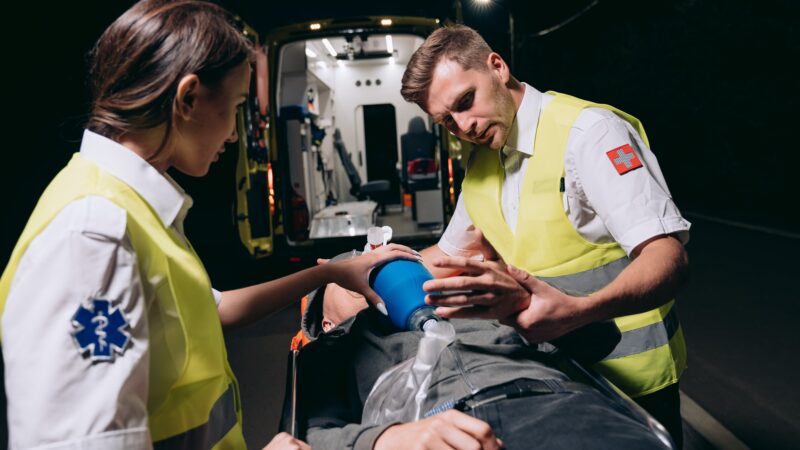Nurturing Compassionate Care: The Importance of Mental Health Education for Medical Students

Introduction:
In the demanding and emotionally charged field of medicine, the importance of mental health education for medical students cannot be overstated. As future healthcare providers, medical students must be equipped with the knowledge, skills, and empathy necessary to address the mental health needs of their patients effectively. This article explores the significance of mental health education in medical school curricula and its role in promoting holistic patient care.
- Recognizing the Need for Mental Health Education
- Growing mental health challenges: The prevalence of mental health disorders is on the rise, necessitating greater attention to mental health education in medical training.
- Stigma and misconceptions: Addressing the stigma surrounding mental illness and promoting a culture of empathy and understanding among future healthcare providers.
- Impact on patient care: Effective management of mental health conditions can improve overall patient outcomes and quality of life.
- Integrating Mental Health Education into Medical Curricula
- Foundational knowledge: Providing medical students with a solid understanding of psychiatric disorders, including etiology, symptoms, and treatment modalities.
- Clinical skills development: Training in assessment, diagnosis, and evidence-based management of common mental health conditions encountered in clinical practice.
- Communication skills: Enhancing communication techniques to facilitate empathetic and nonjudgmental interactions with patients experiencing mental health challenges.
- Interprofessional collaboration: Fostering collaboration with mental health professionals to provide comprehensive, multidisciplinary care for patients with complex mental health needs.
- Addressing Burnout and Self-Care
- Recognizing signs of burnout: Educating medical students about the risk factors and warning signs of burnout, compassion fatigue, and vicarious trauma.
- Promoting self-care practices: Encouraging medical students to prioritize self-care activities such as exercise, mindfulness, and seeking social support to maintain their own mental well-being.
- Institutional support: Providing access to mental health resources, counseling services, and peer support groups to help medical students cope with stress and burnout.
- Experiential Learning Opportunities
- Clinical rotations: Exposing medical students to psychiatric settings, including inpatient units, outpatient clinics, and community mental health centers, to gain firsthand experience in caring for patients with mental illness.
- Simulation training: Using simulated scenarios to simulate psychiatric emergencies, patient interviews, and treatment planning exercises to enhance clinical skills and decision-making abilities.
- Elective courses and workshops: Offering elective courses and workshops focused on specific areas of mental health, such as addiction medicine, child and adolescent psychiatry, and trauma-informed care.
- Destigmatizing Mental Illness in Medical Education
- Open discussions: Creating safe spaces for medical students to discuss their own mental health challenges, experiences, and coping strategies without fear of judgment or stigma.
- Role modeling: Encouraging faculty members and practicing physicians to openly discuss their experiences with mental health challenges and demonstrate vulnerability, resilience, and help-seeking behavior.
- Peer support networks: Establishing peer support groups and mentorship programs to foster a sense of belonging, camaraderie, and mutual support among medical students.
- Cultivating Empathy and Cultural Sensitivity
- Understanding the social determinants of mental health: Exploring the impact of sociocultural factors, including race, ethnicity, gender identity, sexual orientation, socioeconomic status, and immigration status, on mental health outcomes.
- Cultural humility: Promoting humility, curiosity, and respect for diverse cultural beliefs, values, and healing practices related to mental health.
- Addressing healthcare disparities: Advocating for equitable access to mental health services and culturally responsive care for marginalized and underserved populations.
- Evaluating the Impact of Mental Health Education
- Assessment methods: Utilizing diverse assessment tools, including standardized exams, objective structured clinical examinations (OSCEs), and reflective portfolios, to evaluate medical students’ knowledge, skills, attitudes, and professionalism in mental health care.
- Longitudinal studies: Conducting longitudinal studies to track the long-term impact of mental health education on medical students’ clinical practice, patient outcomes, and personal well-being.
Conclusion:
Mental health education is a cornerstone of medical training, equipping future healthcare providers with the knowledge, skills, and empathy necessary to address the mental health needs of their patients effectively. By integrating mental health education into medical curricula and fostering a culture of compassion, empathy, and self-care, medical schools can prepare medical students to deliver holistic, patient-centered care that promotes mental well-being and reduces stigma surrounding mental illness. As we continue to prioritize mental health education in medical training, we can empower the next generation of physicians to make a positive impact on the lives of their patients and communities.





